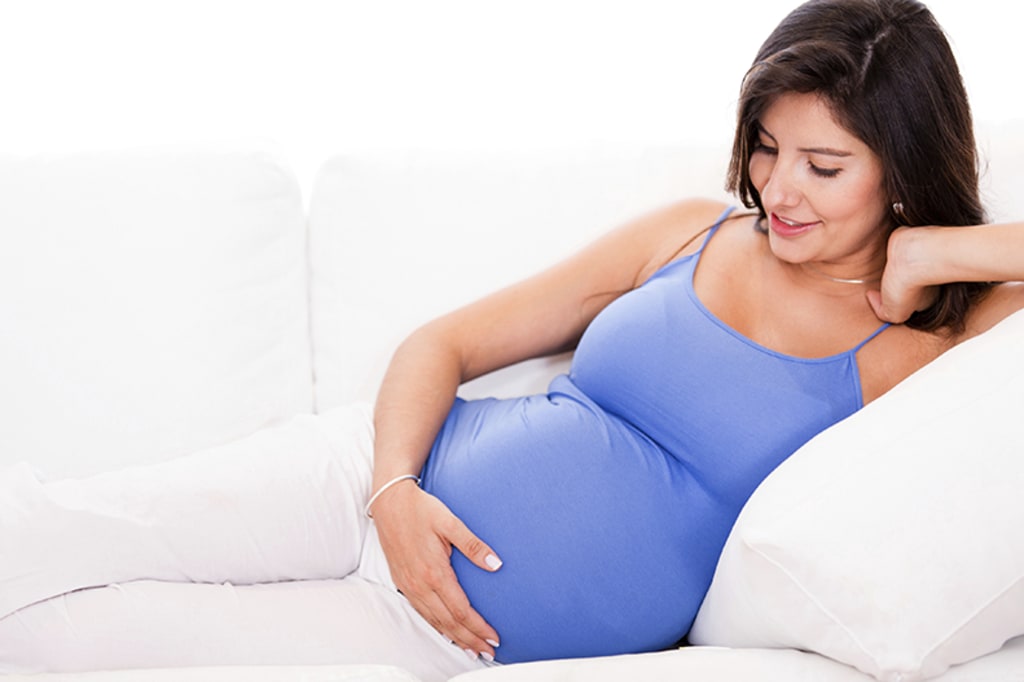Best Time to Get Pregnant After Periods: A Comprehensive Guide
The Application of Fertile Days

Best Time to Get Pregnant After Periods: A Comprehensive Guide
Introduction
In today's article, we will discuss the best time to get pregnant after periods and how to calculate precisely the days that are best for you to achieve the best results. These days are commonly referred to as fertile days. We have also covered this topic in our previous article. There's a lot of confusion surrounding it, and many couples tend to make mistakes. It is crucial to understand your cycle length before delving into the details.
Understanding Your Cycle Length
To begin, it's essential to know your cycle length. Your cycle length refers to the time frame between the first day of your period (day 1) and the first day of your next period. For example, if your period starts on the 1st of June and ends on the 28th of June, your cycle length would be 28 days.
Calculating Fertile Days
Your ovulation day, the most fertile day of your menstrual cycle, occurs approximately 14 days prior to the expected start of your next period. Let's look at some examples to understand this better.
Example 1: Cycle Length of 28 Days
Suppose your cycle length is 28 days, and your period starts on the 1st of June. In this case, your next expected period would be on the 28th of June. Following the rule of ovulation occurring 14 days prior to your expected period, your ovulation day would be the 14th of June. To increase your chances of pregnancy, you should try to conceive on this day, as well as two days before and two days after. Therefore, for a 28-day cycle, your fertile days would be from day 12 to day 16 of your menstrual cycle.
Example 2: Cycle Length of 24 Days
Let's consider another example with a cycle length of 24 days. If your period starts on the 1st of June, your next expected period would be on the 24th of June. Applying the 14-day rule, your ovulation day would be the 10th of June. To maximize your chances of conception, you should aim to have intercourse on this day, as well as two days before and two days after. Therefore, for a 24-day cycle, your fertile days would be from day 8 to day 12 of your menstrual cycle.
Example 3: Delayed Cycles
Delayed cycles are common and can sometimes be challenging to comprehend. For instance, if you have a cycle length of 32 days and your period starts on the 1st of June, your next expected period would be on the 2nd of July. In this case, your ovulation day would be the 18th of June. To increase your chances of pregnancy, you should try on this day, as well as two days before and two days after. Your fertile days, in this case, would be from day 16 to day 20 of your menstrual cycle.
It's important to note that delayed cycles often have a later ovulation date, which can be easily missed if you don't understand this concept. Every female is unique, and cycles vary from person to person, so it's crucial to pay attention to your individual cycle patterns.
Bonus Tips for Maximizing Your Chances of Pregnancy
Now that we've covered the basics of calculating fertile days, let's explore some additional tips to optimize your chances of conceiving.
#1 The Application of Fertile Days
It's important to mention that the calculation of fertile days is valid only for individuals with regular cycles. If you have irregular cycles, such as in the case of Polycystic Ovary Syndrome (PCOS), where your cycles don't follow an expected pattern and sometimes you miss periods, the concept of fertile days may not be applicable. In such cases, it's recommended to consult a healthcare professional for personalized guidance.
#2 Observe the Signs of Ovulation
Around the time of ovulation, your body may exhibit certain signs that can help you identify your most fertile days.
Mittelschmerz (Mid-cycle Pain)
Some women experience abdominal pain or cramps during ovulation. This pain, known as "Mittelschmerz," is a normal occurrence and indicates the best time for conception. If you experience mid-cycle pain, don't be alarmed; it's a natural sign that your body is preparing for ovulation.
Changes in Vaginal Discharge
Paying attention to changes in your body is crucial. Around the time of ovulation, your vaginal discharge becomes thin, slippery, and similar in texture to egg white. This type of discharge indicates that ovulation is imminent. You can check by stretching it between your fingers; if it forms thin strands, it's a positive sign of fertility.
Tracking Basal Body Temperature (BBT)
Monitoring your basal body temperature (BBT) can provide insights into your ovulation pattern. Measure your temperature before getting out of bed, before consuming anything, and before engaging in morning activities. Around the time of ovulation, your temperature may rise by 0.5 to 1 degree Fahrenheit and remain elevated until the end of your cycle. This rise in temperature is caused by the hormone progesterone, which is thermogenic.
Remember, all these signs are natural indicators provided by your body to prepare you for pregnancy. It's important not to stress excessively during this time, as stress can release hormones that may reduce your chances of conception.
The Importance of Male Fertility and Mental Health
While we often focus on female fertility, it's equally important to consider male fertility and the mental health of the male partner. Stress can lead to performance anxiety, making it difficult for the male partner to time intercourse correctly. It's crucial to maintain a natural and loving approach to intimacy, avoiding mechanical routines.
Conclusion
Understanding your cycle length and calculating fertile days is crucial for maximizing your chances of getting pregnant. By paying attention to your body's natural signs, such as changes in vaginal discharge and basal body temperature, you can identify the best time for conception. Remember to approach the process with love and avoid excessive stress. If you have irregular cycles or any concerns, it's always recommended to consult with a healthcare professional for personalized guidance.
FAQs
1. Are fertile days the same for everyone?
No, fertile days can vary from person to person. It depends on the individual's cycle length and ovulation pattern. It's essential to track your own cycle and understand your body's unique fertility signs.
2. Can stress affect fertility?
Yes, stress can have a negative impact on fertility. It releases stress hormones that may disrupt the hormonal balance needed for successful conception. It's important to manage stress levels and engage in activities that promote relaxation and well-being.
3. Is mid-cycle pain during ovulation normal?
Yes, experiencing pain or cramps during ovulation, known as Mittelschmerz, is considered normal for many women. It indicates the release of an egg and the optimal time for conception.
4. Are there any natural ways to boost fertility?
Maintaining a healthy lifestyle, including regular exercise, a balanced diet, and managing stress levels, can positively influence fertility. Additionally, certain supplements, such as folic acid, may be recommended by healthcare professionals to support fertility.
5. When should I seek medical assistance if I'm having difficulty getting pregnant?
If you've been actively trying to conceive for over a year without success (or six months if you're over the age of 35), it's recommended to consult with a healthcare professional specializing in fertility. They can evaluate your specific situation and provide guidance and potential treatments to assist you in your journey to parenthood.





Comments
There are no comments for this story
Be the first to respond and start the conversation.